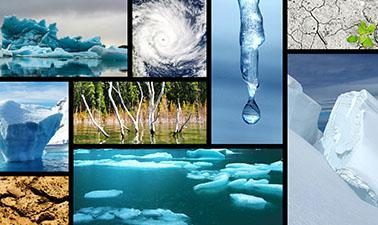
You will develop skills in scenario planning made famous by Shell in the 1960's and now being applied to the climate change challenge in the IPCC reports. Being able to think strategically about future world scenarios and impacts is a skill that directors, managers and others looking to advance their careers across the climate/energy nexus will find invaluable.
This course is part of the Sustainable Energy MicroMasters series. You may take the course as a single course or complete all four courses in the series.
There are two enrolment options: verified enrolment and audit enrolment. If you enrol as a verified learner and successfully complete all four courses and the Capstone Assessment you will qualify for the Sustainable Energy MicroMasters credential.
A Sustainable Energy MicroMasters credential is worthwhile in itself, but, if you wish to continue your studies, the Sustainable Energy MicroMasters credential could be used towards studying the Master of Sustainable Energy at The University of Queensland in Brisbane, Australia.
Learners who choose to enrol as verified, will be required to submit an assignment and achieve an overall passing grade of 70% or above in order to receive the downloadable verified certificate.
This course runs multiple times throughout the year.
What you'll learn
- The history and basics of the climate system
- How we as humans are impacting the climate system
- The future scenarios of climate change and likely risks and impacts
- The general approaches and limits to adaptation
- Policies required to help address the problem
- Skills and knowledge of scenario planning
Course Syllabus
Topic 1: The History and Basics of Climate System
This topic presents information on the history of climate science, the earth's energy balance and how the climate system is investigated.
Topic 2: Human Driven Climate Change
This topic presents the indicators of climate change and describes the influence of people on the climate system.
Topic 3: Risks and Impacts of Climate Change
In this topic both the broader impacts of climate change such as disturbances in the water cycle, and the incidence of extreme weather events as a result of climate change, are investigated.
Topic 4: Approaches and Limits to Climate Adaptation
In this topic, general approaches to adaptation to climate change and the associated challenges are explored.
Topic 5: The Carbon Cycle - Linking Climate to Policy
This topic summarises the key themes presented on the carbon cycle and links them to human activity and overarching policy requirements.
Topic 6: Future Scenarios of Climate Change
This topic explores the methodology used to create global climate models and then examines changes in key climate indicators under a number of different representative concentration pathways.
Topic 7: The Science Policy Nexus in the Climate Change Challenge - Carbon Budgets
In this topic, carbon budgets and how they are affected by the COP 21 agreement and negative emissions technologies are explored.
Topic 8: The Anthropocene Climate: A Earth System Perspective
In this topic, the role of people as the dominant influence on the earth's complex system, including implications for the future and potential tipping points, are explored.
Topic 9: Climate Policy
This topic investigates the role of science in making good policy, different policy types and international policy mechanisms.
Topic 10: Scenario Planning: Examination, Development and Use
This topic looks at the examination, building and use of scenarios as a tool for understanding energy and climate implications.
